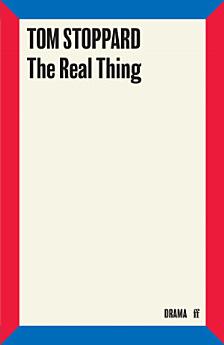The Real Thing
জুন ২০১৪ · Faber & Faber
ইবুক
112
পৃষ্ঠা
family_home
যোগ্য
info
reportমূল্যাংকন আৰু পৰ্যালোচনা সত্যাপন কৰা হোৱা নাই অধিক জানক
এই ইবুকখনৰ বিষয়ে
The play begins with Max and Charlotte, a couple whose marriage seems about to rupture. But nothing one sees on a stage is the real thing, and some things are less real than others. Charlotte is an actress who has been appearing in a play about marriage written by her husband Henry. Max, her leading man, is also married to an actress, Annie. Both marriages are at the point of rupture because Henry and Annie have fallen in love. But is it the real thing?
লিখকৰ বিষয়ে
Tom Stoppard was born in 1937 in Czechoslovakia. His early years were spent in Singapore, India and, from 1946, England, after his mother married an officer in the British Army. Leaving school at seventeen, Stoppard worked as a reporter in Bristol, before moving to London to work as a theatre critic and feature writer. During this period he began to write plays for radio and for the stage and published his only novel, Lord Malquist and Mr Moon. His first major success, Rosencrantz and Guildenstern are Dead, was produced in London in 1967 at the Old Vic after critical acclaim at the Edinburgh Festival.
এই ইবুকখনক মূল্যাংকন কৰক
আমাক আপোনাৰ মতামত জনাওক।
পঢ়াৰ নির্দেশাৱলী
স্মাৰ্টফ’ন আৰু টেবলেট
Android আৰু iPad/iPhoneৰ বাবে Google Play Books এপটো ইনষ্টল কৰক। ই স্বয়ংক্রিয়ভাৱে আপোনাৰ একাউণ্টৰ সৈতে ছিংক হয় আৰু আপুনি য'তে নাথাকক ত'তেই কোনো অডিঅ'বুক অনলাইন বা অফলাইনত শুনিবলৈ সুবিধা দিয়ে।
লেপটপ আৰু কম্পিউটাৰ
আপুনি কম্পিউটাৰৰ ৱেব ব্রাউজাৰ ব্যৱহাৰ কৰি Google Playত কিনা অডিঅ'বুকসমূহ শুনিব পাৰে।
ই-ৰীডাৰ আৰু অন্য ডিভাইচ
Kobo eReadersৰ দৰে ই-চিয়াঁহীৰ ডিভাইচসমূহত পঢ়িবলৈ, আপুনি এটা ফাইল ডাউনল’ড কৰি সেইটো আপোনাৰ ডিভাইচলৈ স্থানান্তৰণ কৰিব লাগিব। সমৰ্থিত ই-ৰিডাৰলৈ ফাইলটো কেনেকৈ স্থানান্তৰ কৰিব জানিবলৈ সহায় কেন্দ্ৰত থকা সবিশেষ নিৰ্দেশাৱলী চাওক।






